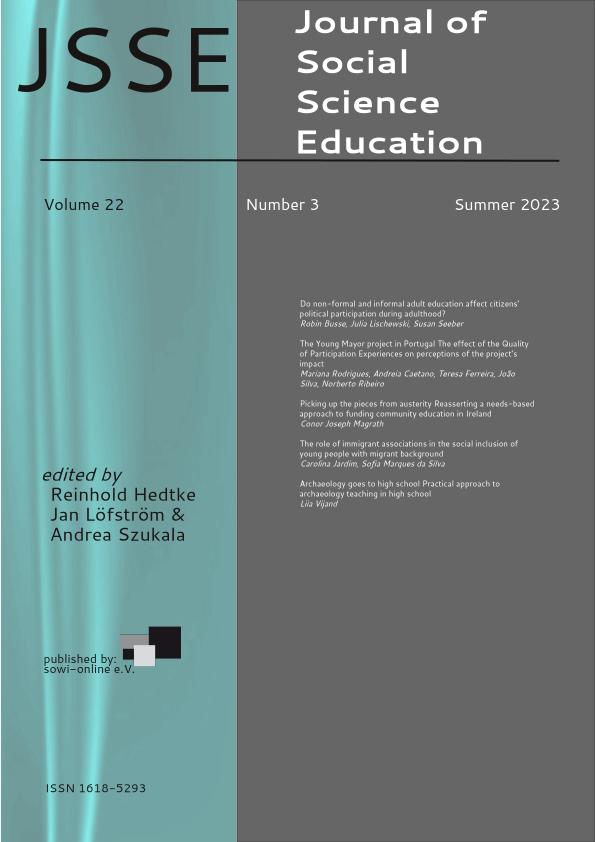Experiences of school democracy connected to the role of the democratic citizen in the future: A comparison of Swedish male and female upper secondary school students
DOI:
https://doi.org/10.11576/jsse-5530Abstract
Purpose: The aim of this study was to explore the link between upper secondary school students’ experiences of school democracy and their future role as democratic citizens, focusing on a comparison between men and women.
Design/methodology/approach: The data derives from a questionnaire conducted to all last year upper secondary school students in Kronoberg county, Sweden. A hypothesis based on the theory of participatory democracy was tested through a four-step multilevel regression analysis.
Findings: The result show no direct effects from experiences of school democracy on the intention to vote, neither for female nor for male students. Instead, the most important factor for civic virtues and behaviour seems to be the personal trait of ambition, which is more prevalent among female students.
Research limitations/implications: More research on different ways to realize democracy in classroom connected to promotion of citizenship is needed, and so is research on how to encourage students’ ambition which is shown to be beneficial
Downloads
Published
How to Cite
Issue
Section
License
Copyright (c) 2023 JSSE - Journal of Social Science Education

This work is licensed under a Creative Commons Attribution-ShareAlike 4.0 International License.



